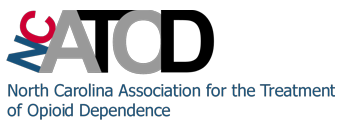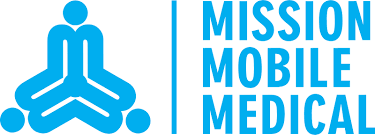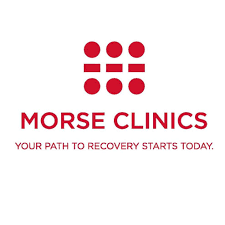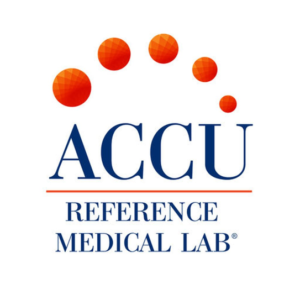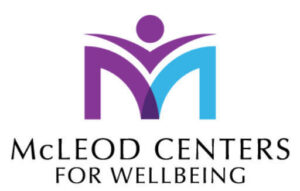NCATOD supports and empowers NC treatment professionals to enhance the quality of patient care in treatment programs by promoting the growth and development of comprehensive opioid treatment services throughout North Carolina.
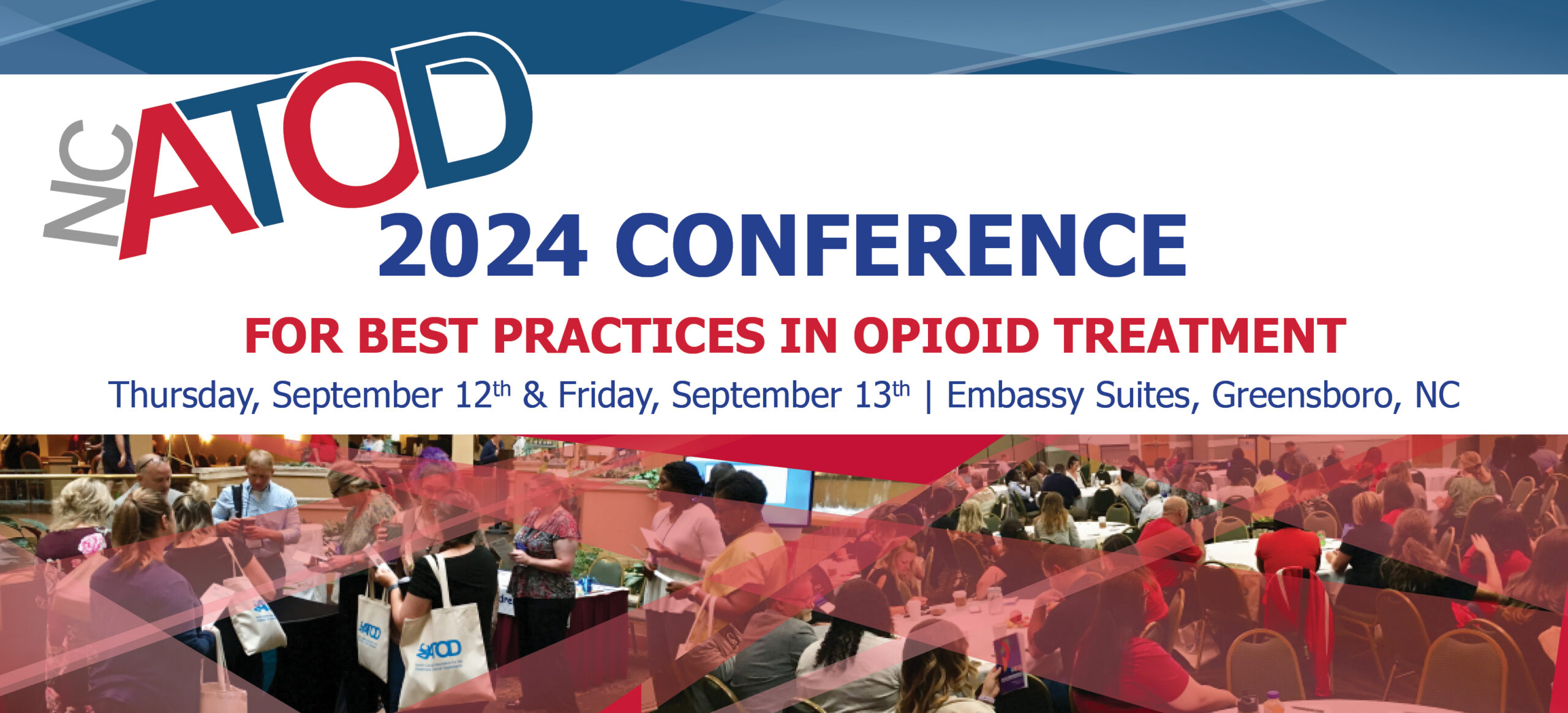
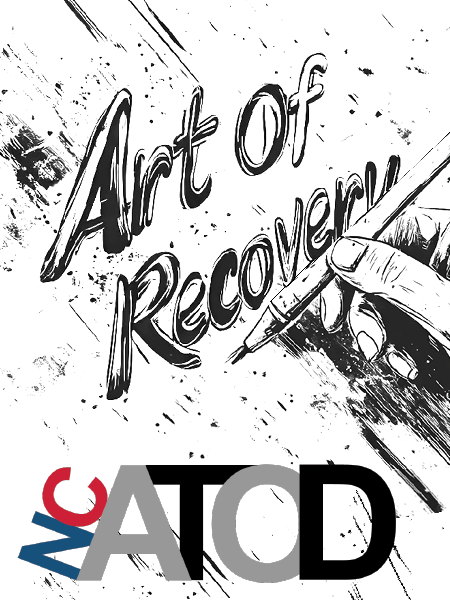
About the Annual NCATOD Conference
Welcome to the 2024 NCATOD Conference where we will be discussing Best Practices in Opioid Treatment! Join us in person at Embassy Suites in Greensboro for an event filled with informative sessions, engaging discussions, and networking opportunities. Learn from experts in the field, share your experiences, and gain valuable insights to improve opioid treatment practices. Sessions have been designed to meet specialized needs of nurses, counselors, administrators and support staff working in the field of Medically Assisted Treatment. Don’t miss this chance to be a part of the conversation and make a difference in the opioid treatment community. Register now to secure your spot!
NCATOD is the North Carolina affiliate of the American Association for the Treatment of Opioid Dependence (AATOD), which was founded in 1984 to enhance the quality of patient care in treatment programs by promoting the growth and development of comprehensive opioid treatment services throughout the United States.
Professional Credit Available
NCATOD has applied to NC Substance Addiction Specialist Professional Practice Board (NCASPPB) for up to 9 hours of credit. Individual credit will be awarded for each session attended, and NCASPPB credit is included with conference registration.
Who Should Attend?
This conference is for nurses, counselors and support staff working in the field of Medically Assisted Treatment, such as:
- Social Workers
- Marriage and Family Therapists
- Professional Counselors
- Mental Health Counselors
- Nurses
Thursday, September 12, 2024
4:00 – 5:30 p.m. — Registration Opens
5:30 – 6:00 p.m. — Networking Dinner
6:00 – 8:00 p.m. — Announcements, Welcome, and Opening Plenary
Announcements & Welcome
Kenny House, NCATOD President
Staying Lit in a Burned Out World
James Campbell, LPC, LAC, MAC, AADC
Friday, September 13, 2024
7:45 – 8:30 a.m. — Registration & Networking Breakfast
8:30 – 10:00 a.m. — Morning Plenary
Announcements & Welcome
Kenny House, NCATOD President
This is Not Your Parents’ Opioid Treatment Program
Nathan Mullins, MD
Melinda Ramage, FNP-BC, CARN-AP, LCAS
Anna Stanley, LCMHCS, LCAS, CCS
Sponsored by Governor’s Institute
10:00 – 10:15 a.m. — BREAK
10:15 – 11:45 a.m. — Concurrent Breakout Sessions I
Session A: Compassion Fatigue or Burnout- What’s Wrong with Me? |
Connie Mele MSN, RN, CARN-AP, PMHCNS-BC, LCAS, FIAAN
Session B: ASAM Criteria: The 4th Edition | Daniel Rhodes, LCAS, CCS, LCMHC, NCC
Session C: The Weight is Over: Integrating Wellness and Weight Management Programs into Opioid Addiction Treatment | Alisha Partee
Session D: Mobile Vans; Are they Worth Doing? | Dr. Eric Morse and Logan Adams
11:45 – 1:15 p.m. — Luncheon Session: State Update | Kelly Crosbie, MSW, LCSW
1:15 – 2:45 a.m. — Concurrent Breakout Sessions II
Session A: DEA Update | Stevie L. Ikner and Heidi Crater
Session B: Counselor Burnout: “I’m O.K.” (Not really) | Melissa Enoch, LCMHC, LCAS, CCS, MAC
Session C: Understanding Veterans: Factors Contributing to Substance Use Disorder and Suicide | Garret Biss, CPRC
Session D: The Evolution of Mobile OTP/NTP Clinics, and What we are Learning | Jacqueline Gerchman
2:45 – 3:00 p.m. — BREAK
3:00 – 4:30 p.m. — Concurrent Breakout Sessions III
Session A: OPIODS And Club Drugs: Ketamine | Wanda Burger LCMHCS, LCAS; CCS; ICCS: SAP; CCMC; PhD
Session B: HIV Today | Liz Ramseur, MPH CHES RCP
Session C: Using Contingency Management in Opioid Treatment Program (OTP) Settings | Ed Johnson, LPC, LAC/S, MAC, CSS
Session D: Substance Use Disorders and Disability Rights Laws: Eliminating Barriers to Healthcare | Sara Harrington, Dane Mullis, BSW
OPENING PLENARY: Staying Lit in a Burned Out World
James Campbell, LPC, LAC, MAC, AADC
James Campbell has worked professionally in the human services field for over twenty-five years in a wide range of clinical settings and currently serves as the Training and Technical Assistance Manager for Southeast Addiction Technology Transfer Center at Morehouse School of Medicine. His passion is helping individuals, families, and communities heal and build on the strengths they possess. He is a member of both NAADAC and ACA, is a past president of APSC/SCAADAC, and is a nationally recognized author and speaker.
Session Description: Most individuals who enter the helping professionals do so out of a sincere passion for helping others. Over time, however, the fire with which many people begin their careers can begin to wane. This session will provide a brief overview of many factors that often contribute to compassion fatigue and burnout. Specific emphasis will be given to practical ways to build resiliency, manage change, and navigate stress effectively as well as how to align passion and purpose to make a significant impact in our own lives as well as the lives of those we serve, all while acknowledging that laughter is the best medicine!
OPENING PLENARY: This is Not Your Parents’ Opioid Treatment Program
Nathan Mullins, MD, Melinda Ramage, FNP-BC, CARN-AP, LCAS, Anna Stanley, LCMHCS, LCAS, CCS
Sponsored by Governor’s Institute
Session Description: “This is Not Your Parents’ OTP” is a dynamic 90-minute plenary session designed for the multidisciplinary audience working in opioid treatment programs (OTPs). This session will trace the evolution of OTPs, from their historical origins to the current landscape shaped by updated federal regulations, including the pivotal changes in 42 CFR part 8 that launched on April 2, 2024. This session will highlight pre- and post-regulation updates, discuss the cultural shifts required to change clinical practice, and quality improvement processes to aid in the implementation and evaluation of these changes.
Dr. Nathan Mullins is board certified in OB/GYN and Addiction Medicine. He has worked as a general OB/GYN in rural southeastern Kentucky before returning to Asheville, where he did his residency, in 2016 to join the OB/GYN faculty at MAHEC. Currently, Dr. Mullins serves as the medical director for a local opioid treatment program, the co-director of the Addiction Medicine Fellowship at MAHEC and serves as part-time faculty at OB/GYN working with pregnant/postpartum patients with substance use disorders.
Mel Ramage (she/her) is the interim director of the NC Perinatal Substance Use Disorder Network, an active research faculty for the Project CARA program, and a perinatal substance use disorder educator and clinician with Behavioral Health Group. A graduate of Purdue University, she started her nursing career as a psychiatric nurse in the U.S. Navy and went on to earn her master’s degree in nursing in Western Carolina University’s Family Nurse Practitioner Program. The majority of her clinical time has been spent in high risk obstetrics where she learned that she is passionate about the intersection of reproductive health, medical illness, and health care access.
Anna Stanley is a Licensed Clinical Mental Health Counselor Supervisor (LCMHCS) and a Licensed Clinical Addictions Specialist (LCAS) with expertise in Opioid Use Disorder Treatment. As the Opioid Treatment Program Specialist with the Governor’s Institute, Anna serves the North Carolina State Opioid Treatment Authority (SOTA) Office within the Addictions Team of North Carolina’s Division of Mental Health, Developmental Disabilities, and Substance Use Services (DMHDDSUS). In her daily work, Anna coordinates closely with Opioid Treatment Programs (OTPs) throughout the state to provide consultation and regulatory oversight, as well as assists the Division with statewide operations related to expanding Medications for Opioid Use Disorders (MOUD) within North Carolina’s criminal legal system.
CONCURRENT SESSIONS I-A: Nursing | Compassion Fatigue or Burnout- What’s Wrong with Me?
Connie Mele MSN, RN, CARN-AP, PMHCNS-BC, LCAS, FIAAN
Bio: Connie has worked in the field of substance use disorders for over 40 years. She began her career as a nurse in a methadone clinic. It is there she fell in love with the specialty of Addictions Nursing. She has spent her career focused on making treatment available to all people who want it. She has received numerous awards and recognitions over her career. The most satisfying one is from the client that let’s her know they are still clean and sober.
Session Description: Compassion fatigue ( or the “cost of caring”) can affect anyone who spends much of their time caring for others. It is caused by the profound emotional and physical toll sometimes taken on by people who help others in pain. Burnout (running on empty) is described as a gradual decrease in work engagement because of chronic exposure to stressful situations. Either one of them affects the person not just professionally but also physically, mentally, emotionally and spiritually. We end up not being able to take care of ourselves. It makes it impossible for us to help our clients in an effective and compassionate way. But you CAN treat compassion fatigue or develop a plan if you are burnt out.
CONCURRENT SESSIONS I-B: ASAM Criteria: The 4th Edition
Daniel Rhodes, LCAS, CCS, LCMHC, NCC
Daniel worked directly in OTPs from 2015-Feb 2022 as a counselor, a Clinical Supervisor, and a Clinic Director. He is currently consulting to help bring systems of care in line with ASAM standards of care and working in a Utilization Review capacity, helping providers get credit for the great care they are providing. His primary interests focus on providing patient-centered care in order to create and maintain the relationship necessary to help the client build a firm foundation in recovery. Systematically, he believes that providing patients with the appropriate care at the appropriate time is paramount to a healthy system.
Session Description:
The fourth edition of The ASAM Criteria has been released. Systems of care will be transitioning to the new guidelines. It is essential for all practitioners—doctors, nurses, counselors, social workers—to understand the new Criteria and what this means for the essential work they perform. This presentation will broadly equip learners to incorporate the new Criteria into their work. Using the Criteria is easy way to help patients get the best treatment available and to fully support their needs.
CONCURRENT SESSIONS I-C: The Weight is Over: Integrating Wellness and Weight Management Programs into Opioid Addiction Treatment
Alisha Partee, MA, CADC, WLS
Alisha Partee is an innovative and passionate alumnus of the Institute of Integrative Nutrition and future Certified Personal Trainer and Nutrition Coach through the National Academy of Sports Medicine. She holds a master’s degree in Human Services and has been passionately serving in the field of addiction treatment as a Certified Alcohol Drug Counselor for the past 8 years. Her passion and specialty expand into the integration of wellness programs within addiction treatment. As a Certified Weight Loss Specialist, her mission is to support others through weight management programs, fitness and nutrition coaching, and lifestyle changes to restore optimal health.
Session Description:
Opioid use and the recovery process alters the body in many ways. Although there is help available, the body continues to attempt to heal and restore back to homeostasis. Oftentimes, the medication-assisted treatment process can manifest additional health challenges that need immediate attention. These health challenges, over time, can affect client’s mobility, mental mind, confidence and self-esteem, relationships, social life, and ultimately their sobriety. This presentation focuses specifically on weight challenges within MAT programs and provides a fresh perspective on the importance of integrating wellness and weight management programs into MAT programs. Emphasis will be on screening for eligibility into weight management programs, the 3 essential components of managing and maintaining healthy weight while in addiction treatment, the benefits of integrating wellness initiatives into treatment, and 8 ideas on how to launch a Weight Management program into your current treatment program.
CONCURRENT SESSIONS I-D: Mobile Vans; Are they Worth Doing?
Eric Morse, M.D.
Dr. Eric Morse is an Addiction and Sports Psychiatrist. Dr. Morse is the CMO of the Morse Clinics – Johnston Recovery Services in Clayton, Morse Clinics of Asheboro, Durham, Roanoke Rapids, North Raleigh, Dunn, Zebulon, Chatham Recovery in Siler City, and Vance Recovery in Henderson. All of the Morse Clinics proudly accept Medicaid and Medicare. After his residency in psychiatry at the UNC, he completed an addiction psychiatry fellowship at the University of Maryland. He won the Fred Glazer Award in 2021 and the Marie Award in 2022 from AATOD for lifetime achievement in treating opioid use disorder. At Carolina Performance in Raleigh, Dr. Morse had his 275-patient limit for buprenorphine maintenance and has been a PCSS-B mentor since it started in 2003 and is an Opioid Response Network mentor with the AAAP and SAMHSA. With 8 buprenorphine waivered physicians, Carolina Performance may be one of the largest buprenorphine OBOT providers in North Carolina. He serves as a consultant for the state in educating physicians on the proper treatment of opioid use disorder through the Governor’s Institute.
Session Description:
Join this session for a detailed discussion on the benefits and potential pitfalls to avoid with incorporating mobile units for medicated assisted therapies.
CONCURRENT SESSIONS II-A: DEA Update
Diversion Investigator Heidi Crater has been with the Drug Enforcement Administration for 13 years. Ms. Crater is currently assigned to the Greensboro Resident Office Diversion Group in North Carolina. Prior to Greensboro, Ms. Crater worked in the Charlotte, North Carolina DEA office as the Secretary to the Assistant Special Agent in Charge and as an Investigative Assistant for multiple drug enforcement task forces. Ms. Crater has also served as the case agent on numerous Diversion cases resulting in regulatory actions, indictments and civil penalties from violations of the Controlled Substance Act.
Supervisory Diversion Investigator Stevie L. Ikner is a 26-year veteran of the Drug Enforcement Administration. Mr. Ikner is currently assigned to the DEA Atlanta Division’s Greensboro Resident Office located in Greensboro, NC. As the Group Supervisor, Mr. Ikner is responsible for day-to-day Diversion operations for the central and western jurisdictions of North Carolina. Mr. Ikner began his career in 1998 in the Riverside Resident Office in Riverside, CA. Mr. Ikner was previously assigned to the DEA Headquarters Diversion Control Division in Arlington, VA as a Lead Staff Coordinator in the Office of Diversion Control Regulatory, Regulatory Section from 2020-2024. While in HQ, Mr. Ikner had the distinct opportunity to serve a detail in the Import/Export Section as a Lead Staff Coordinator where he monitored all imports and exports of controlled substances and listed chemicals under the Diversion Control Program throughout the United States. Mr. Ikner was previously assigned to the DEA Office of Training, in Quantico, VA from 2019-2020, as an Instructor and Course Developer. Prior to that, Mr. Ikner was assigned to the Miami Division Office from 2016-2019; the Washington Division Office from 2002-2016; and the Houston Division Office from 1999-2002. Mr. Ikner served as the case agent on numerous Diversion cases resulting in criminal convictions, regulatory actions and civil penalties from violations of the Controlled Substances Act.
Session Description:
Join us for this interactive discussion as we cover
- DEA Support of medications for opioid use disorder (MOUD)
- Public Health Emergency – Flexibility in regulations to support MOUD
- What is a Mobile NTP
- Elimination of Data-Waiver Designation
- Overdose Data/Trends
- One Pill Can Kill – DEA’s Public Campaign
- Xylazine
- Resources on the DEA Website
- What to Expect: DEA On-Site Inspection.
CONCURRENT SESSIONS II-B: Counselor Burnout: “I’m O.K.” (Not really)
Melissa Enoch, LCMHC, LCAS, CCS, MAC
Ms. Enoch is the Owner/CEO and Administrative Director of Trinity Counseling Services LLC, Charlotte NC and Burlington NC, a private outpatient substance use treatment facility, which utilizes Cognitive Behavioral Therapy, Motivational Interviewing, and Stages of Change to assist clients in fulfilling their goals. Melissa is a Licensed Clinical Addiction Specialist, North Carolina Addiction Specialist Professional Practice Board, Licensed Professional Counselor Associate, the North Carolina Board of Licensed Clinical Mental Health Counselors and Master Addictions Counselor, NAADAC. Melissa graduated from Walden University February 2014 with Master’s of Mental Health Counseling. Melissa graduated from University of Phoenix in April 2008 with a Masters of Business Administration. Melissa graduated from UNC Charlotte May 1993 with Bachelor of Arts degree in Psychology, minor in Sociology. She has worked in the Mental Health/Substance Use Disorder field for nearly 30 years in various capacities including Detoxification, Corrections and Treatment. During this time, she has developed curriculums in order to convey the information in the most effective way for the understanding of the consumers. Consumers have included clients, colleagues and now corporations regarding Therapy principles and practices, Substance Use Disorder Education, and other specific topics including Anger Management, Stress Management and assisting other organizations in the creation of Standard Operating Procedures and Curriculums.
Session Description:
Long term stress can lead to Burnout; defined as mental and physical exhaustion. During this session participants will discuss signs of burnout, identify personal stressors, discuss how burnout is a professional impairment its organizational impact, and learn steps to reduce and/or avoid burnout by gaining the knowledge of strategies to appropriately address these issues allowing them to be more effective in their respective practice.
CONCURRENT SESSIONS II-C: Understanding Veterans: Factors Contributing to Substance Use Disorder and Suicide
Garret Biss, CPRC
Garret Biss is a retired Marine Corps Pilot. Transitioning from military service was a traumatic chapter of Garret’s life; one defined by a struggle with substances and alcohol. While surviving this chapter, Garret began a journey of personal discovery and meaning which led to studying the science of human flourishing and emotional wellbeing as it pertains to recovery from addiction. Garret leverages his personal and professional experience as a presenter, certified recovery coach, and as a founder a recovery residence. His mission is to empower others towards their best recovery through curriculum development, online programs and recovery mindset coaching.
Session Description:
A lack of connection, authenticity, or sense of meaning and purpose are factors that promote addictive behaviors or SUD for many. This is especially true for Veterans who are often unprepared for the unique ways these challenges affect members of the military. Learn how these factors are exacerbated for Veterans in transition and how to help Veterans navigate this high-risk period of their life. This presentation will prepare participants for working with Veterans by helping them meet Veterans where they are and provide the support and understanding Veterans need for their journey in recovery. The audience will experience a shift in understanding and perspective about this issue that will leave them feeling hopeful and empowered to make a difference in the Veteran population. By the end, participants will feel better equipped to serve those who have served us.
CONCURRENT SESSIONS II-D: 8. The Evolution of Mobile OTP/NTP Clinics, and What we are Learning
Jacqueline Gerchman
Jacqueline Gerchman is a seasoned advocate for healthcare and education with over 25 years of experience that includes business and healthcare operations. Her unwavering dedication lies in championing access to healthcare by supporting organizations in their mission to provide services where they are needed most. She holds a Master’s in Business Administration, a Bachelors of Applied Sciences in Business Economics and Management and is pursuing a Doctorate in Business Administration and Intelligence. With her extensive experience, unwavering dedication, and passion for improving healthcare access, Jacki continues to make a profound impact on the field of addiction services and healthcare accessibility.
Session Description:
This presentation is designed to provide insight into the history of mobile OTP/NTP clinics with respect to today’s landscape including state specific examples. Additionally, this presentation will provide a foundation for how to create impact with a mobile program, key considerations for success when planning a successful and sustainable program.
CONCURRENT SESSIONS III-A: OPIOIDS And Club Drugs: Ketamine
Wanda Burger LCMHCS, LCAS; CCS; ICCS: SAP; CCMC; PhD
A psychiatric nurse who survived a near death accident caused by a drunk driver , has dedicated her life to substance and mental health fields. A dual licensed supervisor, became an ACEP for NAADAC and NBCC in 2014. Over the last 20 years she assisted numerous agencies in developing programs. Pilot Programs she has attended include TFCBT (Trauma Focused Cognitive Behavior Therapy), CCMC (Certified Military Counselor) and LCFE (Local Certified Forensic Evaluator). Each month she leads a group of clinicians of various certifications and licenses for supervision and CEUs. 2021 to 2022 she was on the LCPANC (Now LCMHCANC)board as Program Director. She has been a guest trainer for programs and colleges including McLeod, MAHEC, OCTOBER ROAD, ATOD, APNC and NC STATE. Last year she accepted the title of CCO for the new Trauma Network created by a CACD and CRC from NC STATE. She is a consultant and contracted supervisor for various agencies including Winston Salem Rescue Mission and holds a caseload of trauma for children, civilians, military, DUI and CDL.
Session Description:
This presentation will cover an overview of Opioids including what they are, brief overview of major opioids with a focus on Ketamine: how to identify, facts specific to ketamine; tolerance, addiction verses dependence; with drawl, and interventions ; Learners will be able to identify the origins of opioids and the affects on the person and the family. At the end of this session participants will be able to identify appropriate interventions for the person and the family and identify the difference between mild, moderate and severe misuse and when and where to refer
CONCURRENT SESSIONS III-B: HIV Today
Liz Ramseur, MPH CHES RCP
Liz Ramseur is the Chief Operating Officer with the ADIS Leadership Foothills-area Alliance (ALFA). Liz has worked in HIV prevention and care for the last 8 years and is credited with establishing many community programs including a harm reduction program and mobile testing unit. Liz holds a Master of Public Health from Lenoir-Rhyne University as well as several certifications including the Certified Health Education Specialist and Recovery Coach Professional designation.
Session Description:
This presentation will outline the latest information on HIV care and prevention as well as the intersection between HIV transmission and opioid use. The presentation will cover coinfections and how SUD facilities can partner with prevention and care agencies to educate and provide access to services.
CONCURRENT SESSIONS III-C: Using Contingency Management in Opioid Treatment Program (OTP) Settings
Ed Johnson, LPC, LAC/S, MAC, CSS obtained a Bachelor’s Degree from Auburn University and a Master’s Degree in Clinical Counseling from the Citadel. Ed recently retired from the Carolinas and Kentucky Program Manager for the Southeast Addiction Technology Transfer Center (Southeast ATTC) located at the National Center for Primary Care, Morehouse School of Medicine in Atlanta. For the previous twenty years, he held various clinical positions at Charleston Center (Charleston County Department of Alcohol and Other Drug Abuse Services). Starting in November 1999 he served as Program Administrator for the Opioid Treatment Program and Infectious Disease Service at Charleston Center. He has provided numerous trainings in the Southeast on Recovery-Oriented Systems of Care, Professional Ethics, HIV / Addiction, Opioid Use Disorders / Treatment and issues related to Lesbian, Gay, Bisexual and Transgender (LGBT) Individuals and Addiction and Clinical Supervision He is currently credentialed / licensed as a Master Addiction Counselor (MAC), a Certified Clinical Supervisor (CCS), and a Licensed Professional Counselor (LPC).
Session Description: Join us for and interactive dialogue on contingency management. Upon completion of this training, participants will be able to articulate the differences between “reinforcement” and “punishment” within the context of Motivational Incentives; state the three essential elements of a Contingency Management Program; and describe four of the seven founding principles of a Contingency Management Program.
CONCURRENT SESSIONS III-D: Substance Use Disorders and Disability Rights Laws: Eliminating Barriers to Healthcare
Dane Mullis, BSW
Dane Mullis is an advocate with Disability Rights NC. He has worked as a certified alcohol and drug counselor. Dane has a bachelor’s degree in social work from Western Carolina University and will be pursuing a master’s degree in social work. Dane has done work in harm reduction with several organizations in the Western North Carolina
Sara Harrington
Sara Harrington is an attorney with Disability Rights NC. She has advocated for friends and family with disabilities for more than 20 years. She graduated from Wake Forest University with a Bachelor’s degree. Sara received her law degree from Campbell University School of Law.
Session Description:
The number of people diagnosed with substance use disorder (SUD) has significantly increased over the last decade, along with the number of reported overdose deaths. Disability rights laws have an important role to play in combatting this crisis. These laws provide people with SUDs equal access to lifesaving medical and rehabilitation services. In this training, you will learn about the background on the opioid epidemic In North Carolina, treatments for SUD, how to determine whether substance use disorder is a protected class, and examples of SUD/OUD discrimination in healthcare settings.
The North Carolina Association for the Treatment of Opioid Dependence once again presents the 2024 Conference for Best Practices in Opioid Treatment: Voices for Recovery, September 12th – September 13th in Greensboro, NC. Tracks have been customized to meet specialized needs in the areas of Nursing, Administration, Clinical and Leadership.
Join us by registering now. Please register early! Conference participation will be limited.
Online Event Registration Powered by Eventbrite.
Refund Policy
A full refund (less a $20.00 service fee) can be made for conference registration cancellations completed by 5 p.m. August 30, 2024. NO REFUNDS will be made thereafter, but a substitute participant may attend.
North Carolina Addiction Specialist Professional Practice Board
NCATOD has applied to NC Addiction Specialist Professional Practice Board (NCASPPB) for up to 9 hours of credit. Individual credit will be awarded for each session attended, and NCASPPB credit is included with conference registration
All conference related questions need to be made to: Registration@NCATOD.org.
Embassy Suites
204 Centreport Drive
Greensboro, NC 27409
The Embassy Suites in Greensboro, NC offers such great meeting rooms as well as excellent accommodations for those who need housing. The number of available rooms will meet our conference needs quite well and the negotiated price for participant housing is outstanding.
The Embassy Suites is located in the center of the Triad, just 6 miles from the Piedmont Triad International Airport at the intersection of Interstate 40 and Highway 68. They are the premier center for hospitality in the area, with a full range of services to meet every traveler’s needs. The 219, all-suite property has an elegant 7-story atrium where the fresh scent of lush greenery fills the senses. Water cascades from a luxurious fountain and sunlight radiates through the skylights overhead.
Each suite is beautifully decorated with a private bedroom and spacious living room. All of the suites have a refrigerator, microwave oven, individual cup coffee maker, two flat screen televisions, two telephones, high speed Internet and a very functional dining/work table with ergonomic chair. Choose a suite with 2 double beds or 1 king bed; in addition each suite is equipped with a queen size sleeper sofa for extra guests.
Since the NCATOD Conference registration fee does NOT include housing/lodging, special daily rates of $144.00 + tax (Two Double Beds or One King Bed, Non-Smoking), have been negotiated with the Embassy Suites. This room rate includes breakfast on Thursday morning, plus a complimentary reception Thursday and Friday evenings.
All lodging/housing arrangements must be made directly with the Embassy Suites no later than August 10, 2024
CLICK HERE TO BOOK YOUR ROOM ONLINE NOW! SOLD OUT
Or call 336-668-4535 to make your hotel reservation.
Use Booking Code: NCATOD Meeting.
2024 NCATOD SILVER CONFERENCE SPONSORS
2024 NCATOD CONFERENCE EXHIBITORS
Interested in Exhibiting at NCATOD? Become a Sponsor Today!
Download the Sponsor/Exhibitor Form Now
Pay for Sponsorships Online via the Conference Registration Link
